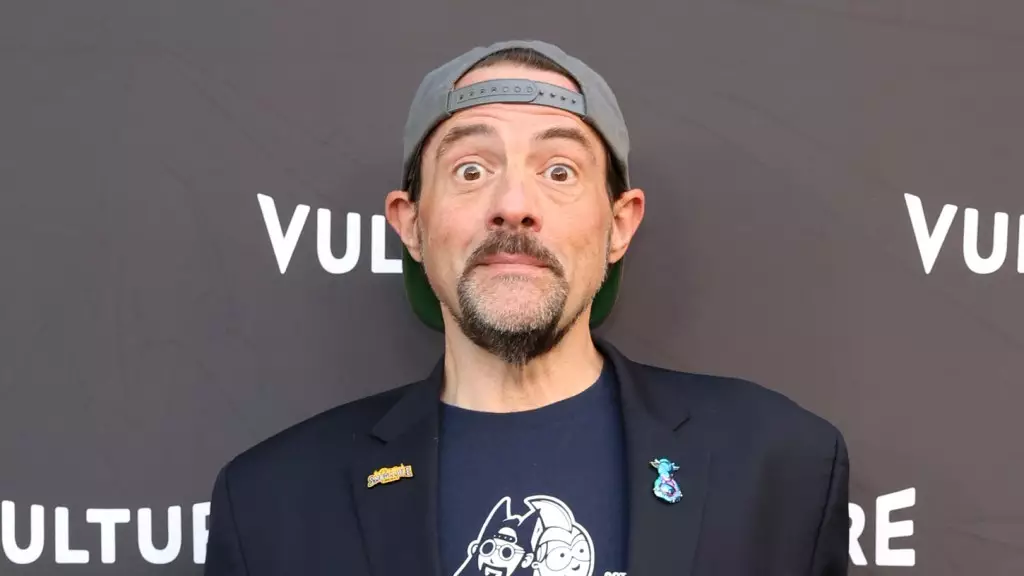In an age of reboots, sequels, and cinematic nostalgia, few filmmakers have navigated this landscape as audaciously as Kevin Smith. After 25 years since its initial release, Smith is gearing up for a sequel to his cult classic, *Dogma*, first debuted in 1999. Announced during his Dogma Confessional at the Vulture Festival, this development is more than just a nostalgic glance back; it’s a risky venture into a territory that could either rekindle the magic of the original film or tarnish its legacy.
Rethinking a Cult Classic
When a filmmaker decides to revisit a beloved piece of work, especially one as polarizing and daring as *Dogma*, significant scrutiny naturally follows. Smith has embraced this challenge head-on, acknowledging that there will be detractors who are wary of tampering with a classic. “Some people will be like, ‘Don’t f—ing touch it. You’ll ruin it,’” Smith candidly remarked, addressing the trepidation surrounding sequels and remakes. However, what makes this opportunity intriguing is his unabashed enthusiasm. Smith’s quoted determination to explore the intricacies of the story hints at a commitment to authenticity, intending to deliver a narrative that resonates with both devoted fans and a new audience.
While critics of sequels often lament a loss of originality, there exists a golden opportunity for Smith to expand on the themes and ideas of *Dogma*. The original film delved into religious satire, existential questions, and morality, all wrapped in a comedic package. A sequel could amplify these explorations, perhaps reflecting on how perspectives of faith and belief have transformed within the last quarter-century. Smith’s confidence in the characters and narrative direction suggests he has a vision, one that could serve to validate the concerns of detractors while also offering something fresh.
Much of the film’s charm stemmed from its eclectic cast, particularly the pairing of Ben Affleck and Matt Damon as the fallen angels Bartleby and Loki. During the festival, Smith conveyed his conviction that the duo would return in significant ways, beyond mere cameos. “Expect a cameo from them—more than a f—ing cameo,” he asserted, evoking the kind of anticipation that only true fans could muster. Their participation essentially assures that the sequel will hold faithful to the roots from which it sprang, possibly rekindling the magic that once captivated audiences.
Yet beneath the surface of this enthusiasm lies a nostalgic acknowledgment of the entertainment industry’s trajectory since the original film’s release. With Affleck and Damon, both of whom have grown into Hollywood heavyweights, returning to their roles could provide audiences with a delightful juxtaposition of past and present: the inexperienced actors we first met versus the seasoned stars they have become today.
Smith’s announcement wasn’t solely about casting; it also pointed to changes in the distribution landscape for films like *Dogma*. After acquiring new distribution rights, the film is set to return to theaters and could become available for streaming for the very first time. This new deal opens doors for not just a sequel, but also for television adaptations, spin-offs, or even extended narratives in a digital age increasingly dominated by series and serial storytelling.
Encouragingly, Smith seems aware of the narrative momentum this could create. “Something we could never do before,” he stated about the potential for expanding the *Dogma* universe. Fans who were initially reluctant about revisiting this world may find that the new tools available to storytellers today allow for greater depth and breadth, presenting stories that were perhaps impossible in the past.
It is critical to mention that as Smith embarks on this journey, he has also expressed renouncement of past alliances with problematic figures in the film industry. After Harvey Weinstein was accused of sexual misconduct, Smith acknowledged his discomfort with previous collaborations and pledged to donate future residuals from his work with Miramax to Women in Film. This honesty speaks volumes about his character and his desire for accountability in the industry, further layering the purpose of this sequel with ethical considerations that resonate greatly with audiences today.
Kevin Smith’s undertaking of a *Dogma* sequel arrives with a medley of excitement, skepticism, and accountability. Its success will not solely hinge on whether it captures the charm of its predecessor, but also on how it navigates the complex cultural landscape of 2023. As Smith takes this bold step, audiences will be watching keenly, curious as to whether this whimsical reunion will transcend its original narrative or stumble under the weight of expectation.

